Online Marketplace Overview: Leading Marketplaces, Marketplace Design and Development
Before diving into the complexities of marketplace website development, let’s take a look at what a common marketplace usually resembles. When a person thinks of the term “marketplace”, he instantly pictures in his mind the logos of Amazon and eBay. And he is right in a way, as these are truly the most prominent global eCommerce marketplaces that sell goods from a vast array of vendors around the globe to people who are also spread across different countries and even continents. However, that is only the tip of the iceberg.
In the early days, before internet services started generating such a buzz, people usually referred to the marketplace or market as an occasion when vendors or merchants gathered at the same location on a regular basis to provide goods and commodities to customers at competitive prices. With the advent of the internet, however, not much has changed. The internet simply provides the speed and convenience that modern-day buyers are accustomed to.
In this day and age, an online marketplace is a website or app that manages shopping or acquiring services from many different sources. The marketplace owner in many cases lacks any kind of inventory, their business is to showcase third-party products to customers and facilitate transactions. Amazon and eBay are ultimate examples of an online marketplace, they sell everything to everybody, however, there are many others, who provide users with unique benefits, therefore they also enjoy a substantial amount of success.
Marketplace Advantages
The main advantages of marketplaces for customers are:
- Customers no longer need to research for products online: everything is in one place;
- Marketplaces offer convenient ways of comparing products and help customers in making the final decision of buying.
- Customers are provided with guarantees: all vendors are being vetted by the marketplace;
- Marketplaces take over the burdens of executing transactions, tracking, disputes and shipment.
Common Marketplace Features

The common features online marketplaces provide nowadays are:
- Vendor profiles: A company profile for vendors and the ability to sell products without having their own personal platforms.
- Managing Listings: The ability for vendors to create, remove, revise, publish, and unpublish their listings.
- Booking: Booking goods or services is another essential feature helping vendors build their customer relations. Efficiently implemented booking allows vendors to get access to an index of their listings booked by consumers and collect delivery information to organize further shipping.
- Online payment methods: this is clearly one of the most important features of the marketplace architecture. It's highly important to offer customers several ways to pay and provide the most convenient and fast steps to do so.
- Ratings and Reviews: this feature builds trust between consumers and retailers, it also provides customers with another source of information about the quality of services and products provided by vendors on the marketplace.
- Notifications: this is a key feature for vendors who want to build a strong and loyal client base. Well-set notifications allow users to manage their settings, get updates and stay informed about key events regarding their orders.
- Bidding: some marketplaces act as auctions and allow to sell products to customers with the highest bid.
- Sending invoices: a rigid invoice system is the heart of any marketplace, as it provides customers and vendors with all the necessary info to carry out transactions, including product characteristics, quantities, agreed prices, payment terms, etc.
- Search options, sorting and filtering are also vital features of a modern-day marketplace. A wide variety of products with similar characteristics present on the marketplace may lead to the “paradox of choice”, as described by psychologist Barry Schwartz, which eventually has a negative impact on sales. Narrowing choices by specifying significant criteria, applying filters provides a good solution.
- Dispute Resolution: a marketplace must provide ways of handling disputes between customer and seller. This feature plays an integral part in attracting customers to your marketplace as it provides them with reassurance that in cases when the seller fails to provide the agreed upon quality of goods or shipping the marketplace will step forward to protect the client.
- Product offerings, discounts and coupons are essential for a marketplace to attract wider audiences with competitive prices.
- Newsletter subscription: instigating users to subscribe to a newsletter allows to regularly inform them of new additions, discounts and product offerings by sending regular updates straight to their inbox.
- Mobile approach: since most of the traffic nowadays comes from mobile devices, it is vital for a marketplace to provide a convenient mobile experience.
Marketplace Types
Marketplaces can be categorized by many factors. Let’s take a look at two classifications. The first one is by the type of products or services listed on the marketplace. Here we can define three types of marketplaces:
Global - marketplaces like Amazon and eBay where you can find almost any type of product and provide customers and vendors alike with great advantages and capabilities.
Vertical - marketplaces that sell products of one type but from various sources. TrueFacet or Etsy are great examples here. TrueFacet sells jewelry and related products, while Etsy is great craftsmanship platform that allows selling handmade and vintage goods.
Horizontal - marketplaces such as Dote, that sell products of various types but they all share similar characteristics. Dote offers women an opportunity to avoid downloading individual retailer apps and buy products from multiple shops all in one place, including Madewell, Forever 21, J.Crew, Lululemon, Brandy Melville, Topshop, Free People, Ann Taylor, Loft, Zara and others. Dote’s focus is a single type of customer and it offers multiple products from a wide variety of retailers.
Another classification is based on the marketplace specialization. According to this, we can distinguish the following types:
Product marketplaces. Marketplaces that showcase products for customers to purchase are product marketplaces. These are the most common and clear examples here are Amazon, eBay, Etsy, Flubit, Newegg and others.
Service marketplaces. Marketplaces that provide transportation services, such as Uber; household/repairing services (TaskRabbit, Agent Anything); medical or healthcare services (ZocDoc); educational services (TakeLessons); IT services (UpWork); etc. are service marketplaces.
Project marketplaces. Project marketplaces arrange crowdfunding for startups by people willing to participate in fundraising a project. In return, project supporters receive special privileges, such as a certain amount of the revenues or the rights to using the final product. The best examples here are Fundable, Kickstarter and Indiegogo.
Hybrid marketplaces. Hybrid marketplaces list classified ads where people can find anything - from products and services to help or advice in forming a relationship. Craigslist, Oodle and OLX are classic examples.
Leading and Trending Marketplaces: Overview
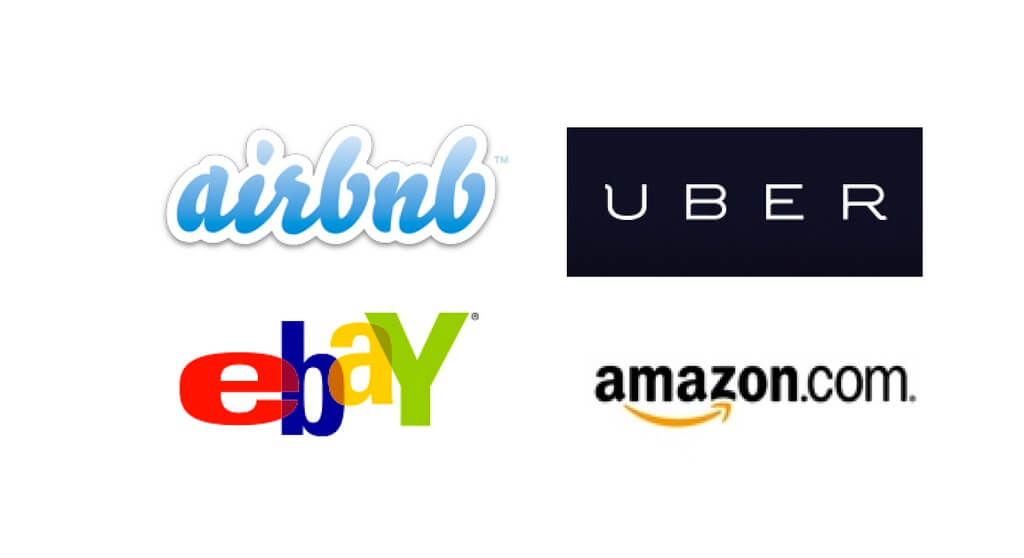
In order to see the big picture in terms of what a competitive marketplace should incorporate we recommend to take a look at already established, leading marketplaces with years of experience.
Amazon

Amazon is a global marketplace with virtually unlimited resources, technological capability and potential, increasing popularity and extensive reach. It was established back in 1994 and now has 304 million active users with over 2.6 billion monthly visitors. As you would expect from the largest and eldest global marketplace, Amazon boasts an astonishing digit of over 100 billion in annual revenues.
One of the advantages that make Amazon stand out amongst the crowd is that it provides a highly successful fulfillment service - Fulfillment by Amazon (FBA). This feature allows vendors to have instant access to the marketplace’s most active and loyal customers – Amazon Prime users. Among the other benefits for merchants, FBA includes access to Amazon’s next-day delivery options and trusted customer service. Additionally, the service eliminates any fulfillment shipping efforts for sellers, handing over warehouse management and packaging to Amazon.
Solidifying its place as a leading global marketplace, Amazon went even further and set foot in the IT and software development market, introducing cloud infrastructure services (Amazon AWS), software, analytics services (Alexa), digital content and multimedia products.
Amazon surely has come a long way from its first days as an online bookstore to become a multi-billion corporation with 11 global marketplaces operating in North America, Europe, and Asia. It has a huge customer database from 180 countries. Amazon is truly a great example and a case-study for up-and-coming marketplaces and startups.
eBay

Another equally successful marketplace competing with Amazon is eBay. The company was founded back in 1995, so it’s also an elderly eCommerce platform. eBay has over 167 million active users with 1.2 billion monthly visitors. Although it does not enjoy the same annual revenues, eBay lures its customers with an auction type format featuring a bidding system where an item could be sold for twice or even three times its listed price because of rivalry between two interested buyers.
Similar to Amazon, eBay also offers various programmes for international selling, including their international fulfillment service, eBay Global Shipping Programme (GSP), which provides sellers with a safe and easy way to sell products internationally to over 60 countries worldwide. GSP is being used by many sellers across the globe, assisting them with various time-consuming but necessary burdens of selling internationally, including completion of customs forms, automatically calculating all international shipping and import charges and providing international shipping with tracking.
eBay sellers also benefit from the option to open an eBay Shop (subscription fees start from £19.99) receiving advanced branding & marketing opportunities, merchandising tools, etc.
Newegg
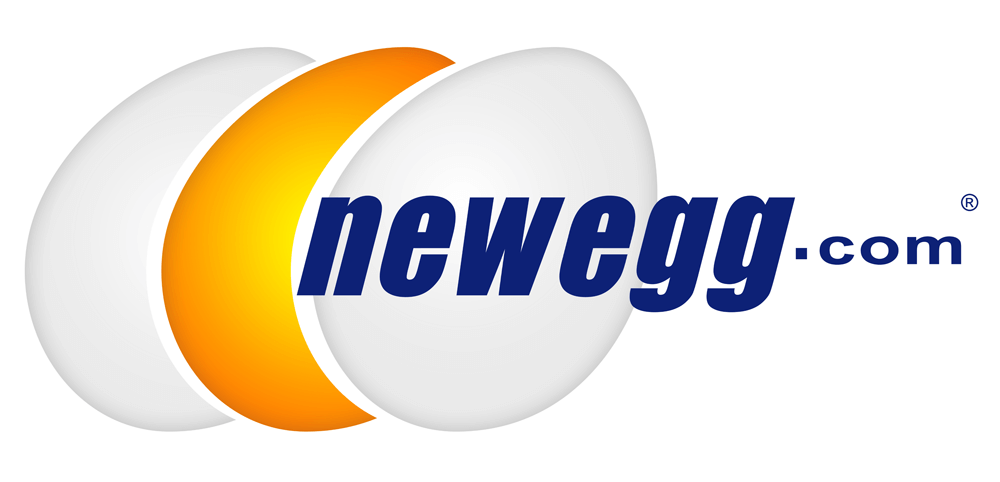
Newegg is a great choice of a marketplace for hardware sellers. Although it is mainly focused on this industry, Newegg also sells products of other categories, including consumer electronics, gaming, apparel, sporting equipment, homeware and some others.
The marketplace was established in 2011 as an expansion business of Newegg.com, which earlier had been a PC components and electronics retailer since 2001. The marketplace boasts of over 30 million of its active customers who are always on the lookout for the latest and greatest in tech products. Since 2011 the Newegg platform has grown to include numerous product categories, as well as become an expansive hub for emerging home automation, virtual reality (VR), and automotive tech categories. What is most impressive, Newegg was able to go from 0 to $1 billion annually in revenue within four years of operations. It’s definitely exemplary for vertical marketplaces.
Etsy
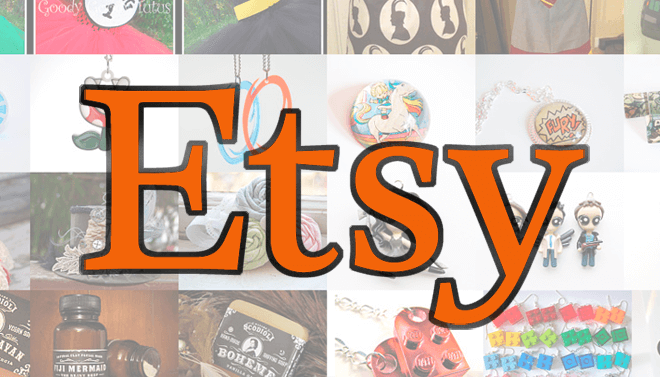
Etsy is one of the most popular e-commerce websites. It a vertical marketplace with a focus on handmade, novelty and vintage items, from jewelry and clothing to toys and art pieces. Currently, it holds around 45 million items for sale, with over 1.7 million active sellers and 28.6 million active customers.
Over the past decade, Etsy has grown substantially thanks to the showcasing of unique and niche products on sites like Pinterest and Instagram. It’s clearly the go-to site for anything handmade. Considering craftsman like to buy arts from like-minded people, it is no wonder that Etsy has generated a plenitude of success.
Bonanza

Bonanza is steadily becoming a strong competitor to large marketplaces, such as Amazon and eBay. It was established in 2007 and now has reached the margin of 6.7 million monthly visitors. As Bonanza expands its popularity beyond the US, it’s rise among the competition will be inevitable. With eBay struggling to remain on top of its game, Bonanza could become a major rival of the auction giant in the next couple of years.
After its launch in 2007, in 2012 it was already named “The Best Place to Sell Online” by About.com Collectibles, “Best Ease of Use” in 2013 by eCommerceBytes, “Best Marketplace Overall” in 2014, “Company of the Year” in 2015 by Best in Biz Awards and “Most Recommended Marketplace” in 2016 by eCommerceBytes. In 2016 it was also named “Best Entrepreneurial Company in America” by Entrepreneur Magazine.
The marketplace has a seller-centric approach and offers good opportunities to small businesses and entrepreneurs who are able to create online shops easily and quickly. It features products of various categories from new and pre-owned clothes, accessories, jewelry, items for home and garden to art pieces, collectibles and antiques.
Rover

Rover is a Seattle-based marketplace where dog owners search for and find local sitters and related services. It now offers its help in over 10 000 cities across the US. In 2014 the CEO of Rover, Aaron Easterly, won the Ernst & Young Entrepreneur of the Year Award for the Pacific Northwest region in the category “Emerging Companies”. Currently, Rover has gathered an account base with over 85,000 sitters.
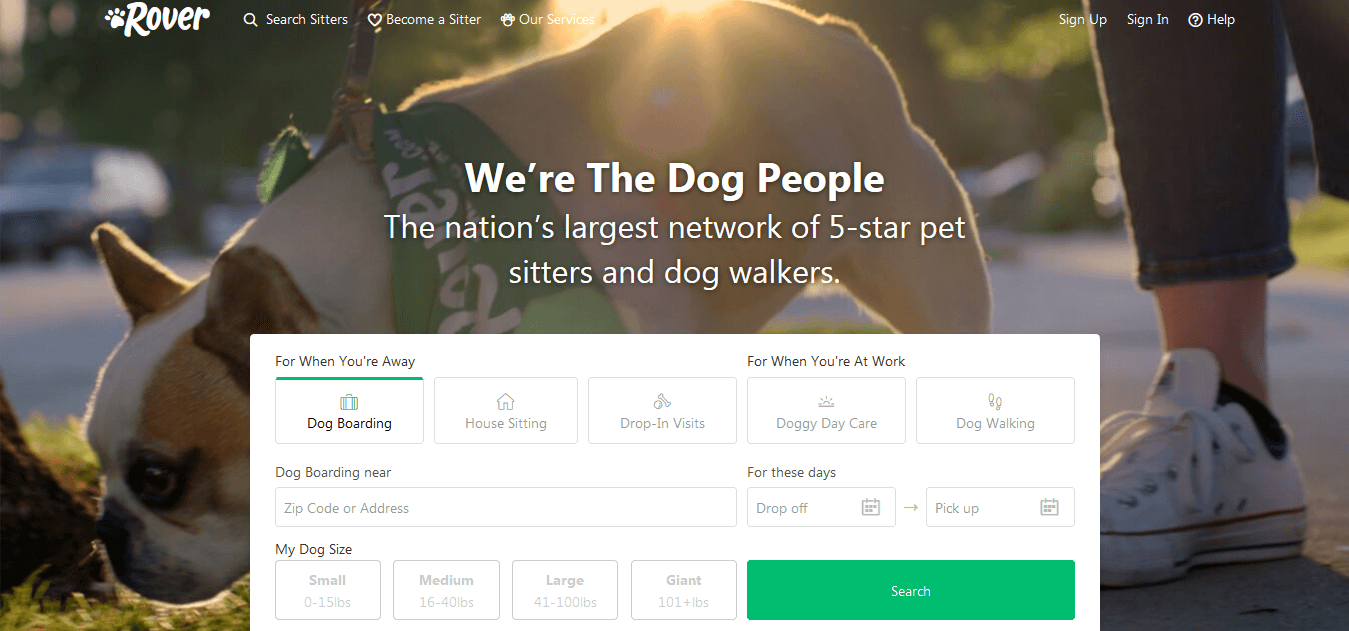
Services listed on the website include dog boarding, home sitting, walking, drop-in visits and daycare. Apart from that, the company offers premium insurance, 24/7 support, background checks, photo updates and secure online payments. The marketplace also has a large community where customers can find information, help and support.
Shpock
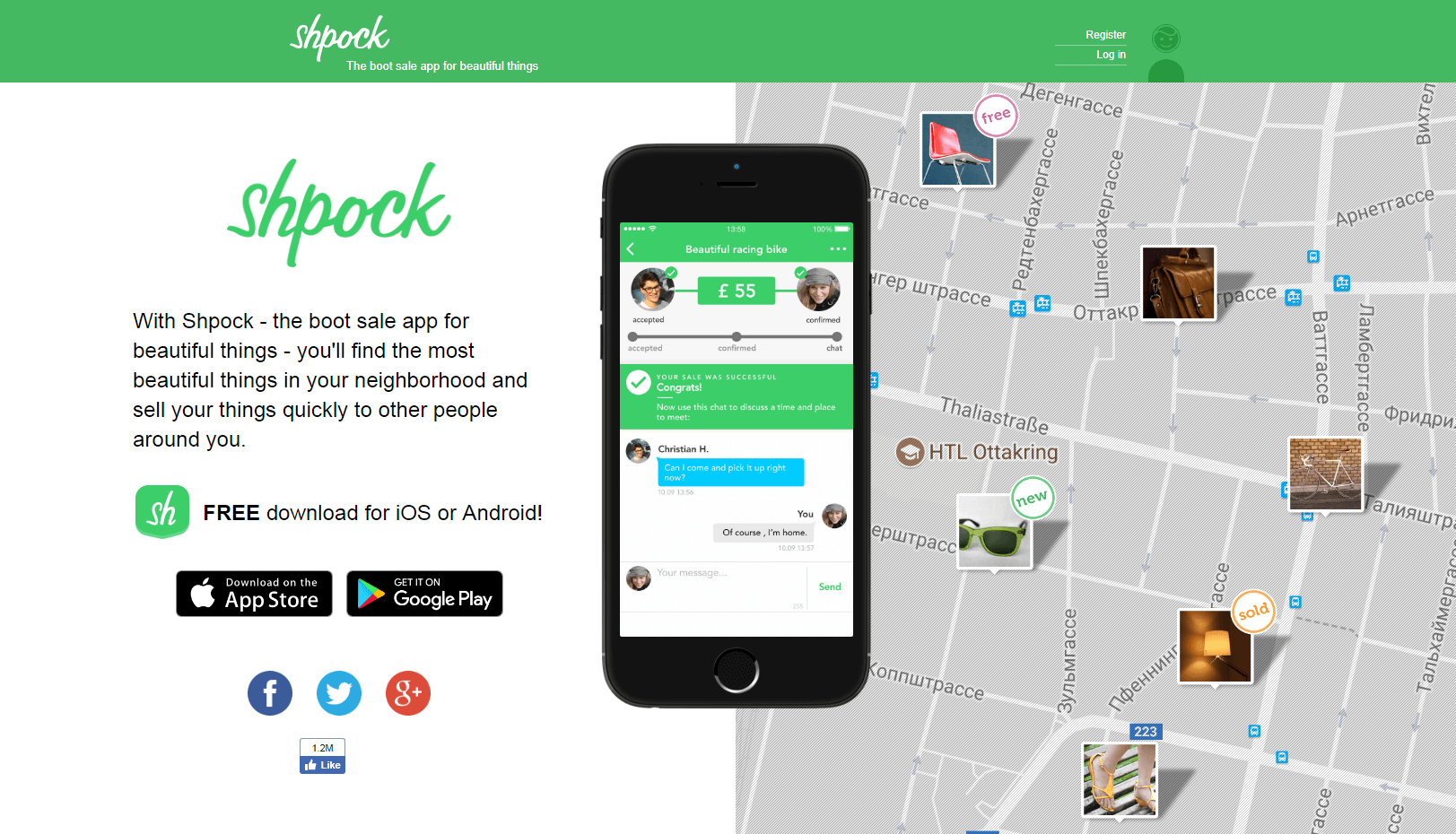
Shpock is an app-based marketplace designed for ‘on-the-go’ selling. Established in 2012, it now has 4.9 million of monthly traffic. Its focus is making selling and buying as easy as possible. Many casual marketplace sellers and consumers are attracted to its simple, graceful interface and the lack of restrictions.
Depop
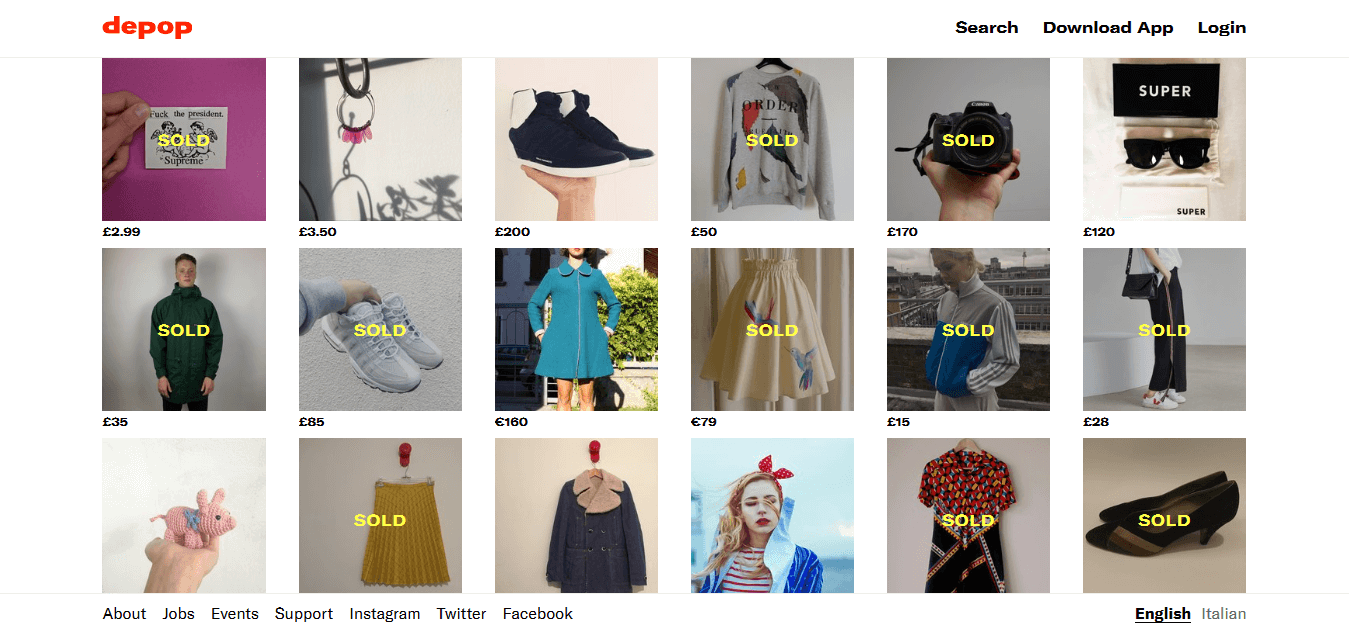
Depop is a second-hand fashion marketplace that’s changing the way people shop for clothes. It has an Instragram-esque interface that is more tailored to the social media generation, capturing the attention of buyers using bold product images.
TakeLessons
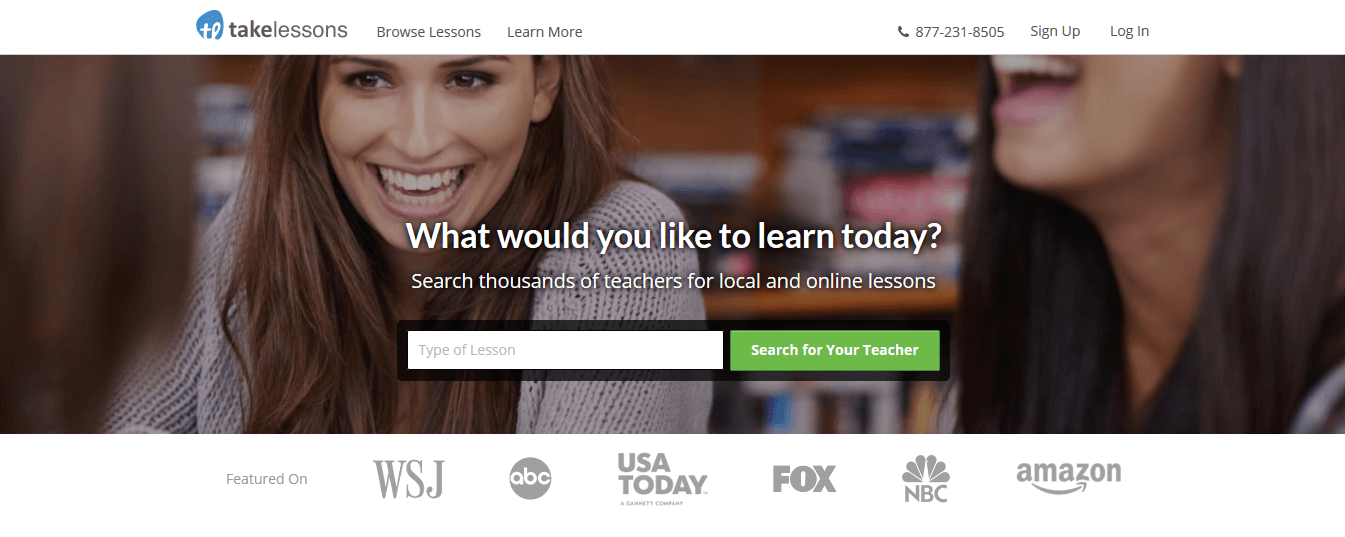
TakeLessons was founded in 2006 and over the years has raised over $19 million. It’s a vertical service marketplace that connects students with pre-screened local instructors across a broad variety of categories.
TakeLessons was initially focused primarily on music, academics and performing arts. It was the best place to find music teachers, academic tutors, dance, acting, and foreign language instructors locally and online.
The marketplace has a rather interesting story of origin. Back in 2004, TakeLessons CEO Steven Cox was a vocalist and guitar player in an alt-rock band “Across the Room” which also consisted of bassist Scotty B. and drummer Enrique Platas. The idea for the project came about when Platas announced he was leaving the band for a cooking job at Chili's, because he was in need of a steady income for he was having a child. Cox wanted to find a way to prevent him from leaving and allow Platas to find steady work as a drum instructor on the internet. In 2006, TakeLessons was launched to connect music and voice instructors with students. Since its launch, the San Diego-based company has expanded across the US with private instructors of various specialty and online training available nationwide.
In February 2014 the company further expanded its presence by acquiring a Chicago-based online lesson facilitator, Betterfly. The addition of Betterfly's extensive user database of students and teachers transformed TakeLessons into the world's most comprehensive in-person and online lesson marketplace, serving over 500,000 students and teachers located in over 4,000 cities across the US.
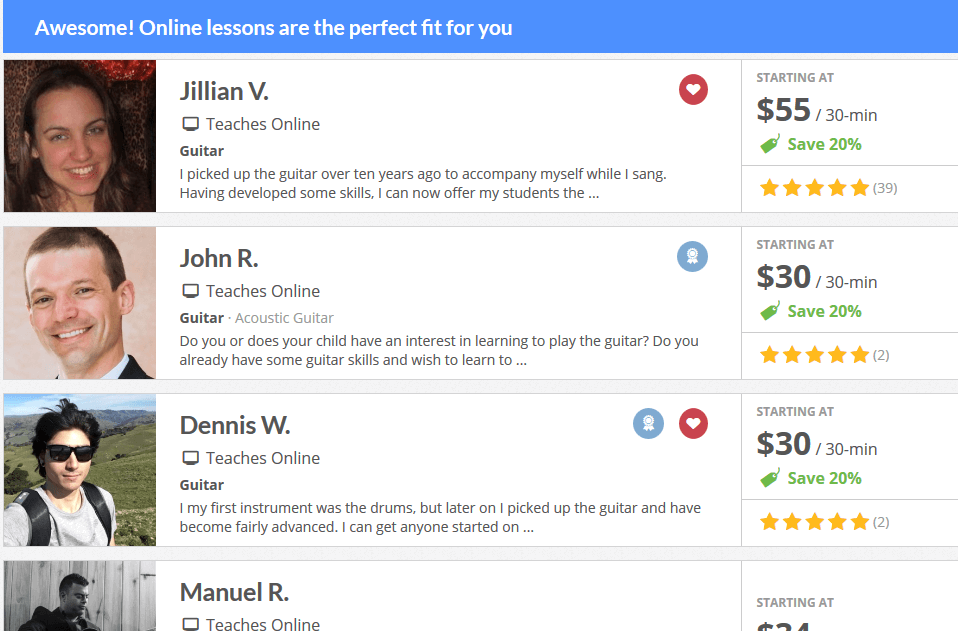
In April 2017 TakeLessons made another cornerstone acquisition of Chromatik, the leader in digital sheet music and music education. Chromatik was founded in 2010 and has grown to power millions of musicians playing, learning, and sharing their favorite music. Prior to TakeLessons’ acquisition, Chromatik raised a total of $7.7 million in venture financing from Rustic Canyon Partners, Learn Capital, Plus Capital, and others. Chromatik Founder and CEO, Matt Sandler, in a statement about the partnership of two companies said “Over the past six years, we are proud to have built powerful technology to help millions of people make more music. We are excited about the next step in our journey in joining the TakeLessons community.”
TakeLessons has come a long way from its inception and deserves its place among the marketplaces listed above and serves a great example for startups and developing marketplaces. It’s definitely worth to take a look at if you are looking to learn from others’ experience and planning on building a vertical service marketplace.
Marketplace Development: Tools and Technologies
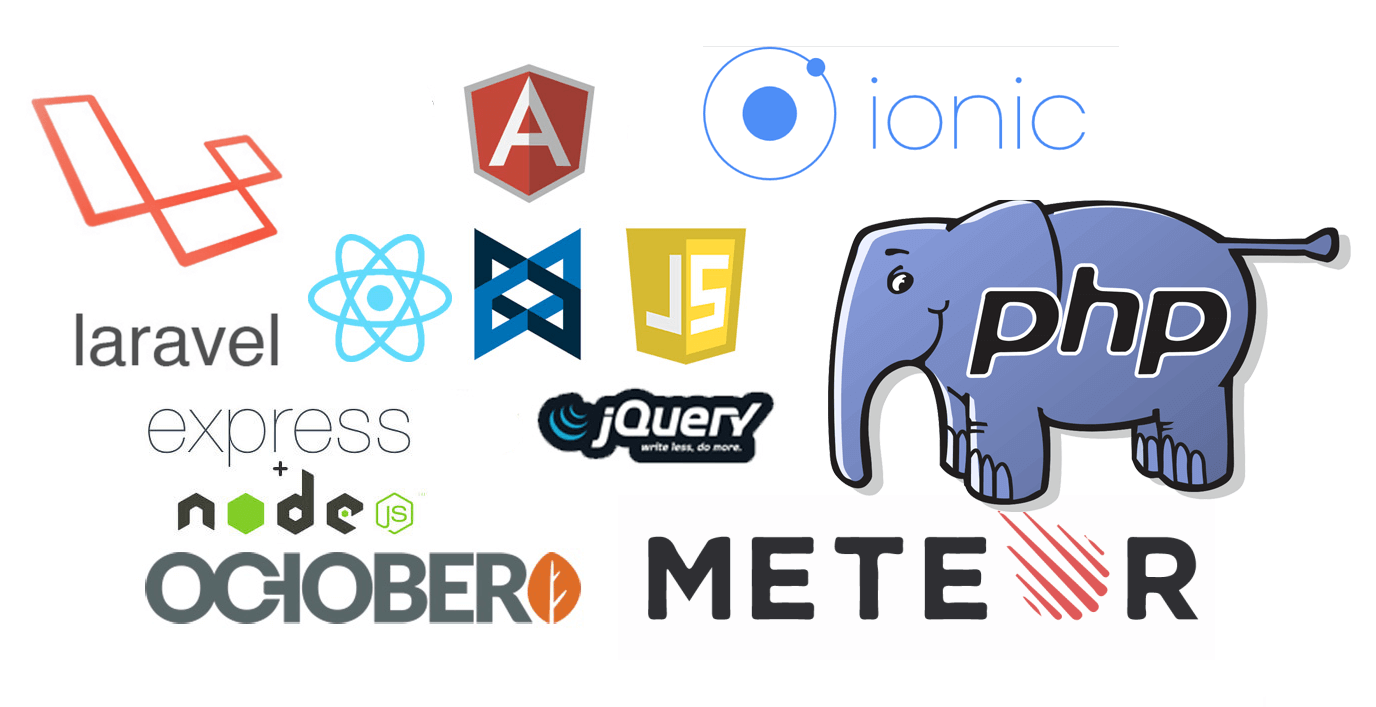
Let’s take a brief look at what technologies are considered best for marketplace development and which of them are used in top marketplaces, such as Amazon, Airbnb or Uber. Most marketplace developers go for JavaScript based technologies, which is not surprising as Javascript has been recognized as a top software development tool in general and a powerful web technology in particular. JavaScript provides a wide variety of tools for development, including libraries, packages and full-fledged frameworks. The most common JavaScript frameworks & tools that are used for modern marketplace development are:
- NodeJS
- ReactJS
- Angular
- ExpressJS
- Meteor
- Ionic
Apart from JavaScript based technologies, which accommodate both the front-end and the back-end part of the solution, some vendors might also choose PHP technologies for the back-end of the project to implement various marketplace features. The modifications laid upon in the latest version of PHP, especially in the performance department, and the powerful Laravel framework that provides many handy tools for development make PHP-based technology stacks a good way to go for some projects.
One of the most popular PHP/Laravel based technologies is October CMS. This content management system has steadily and rightfully owned wide recognition for its simple back-end interface for end-users and admins, its elegant design and great developer experience. All these features make it stand out among the competition of prominent CMS solutions, such as Wordpress, Drupal and others.
Shopaholic Ecosystem
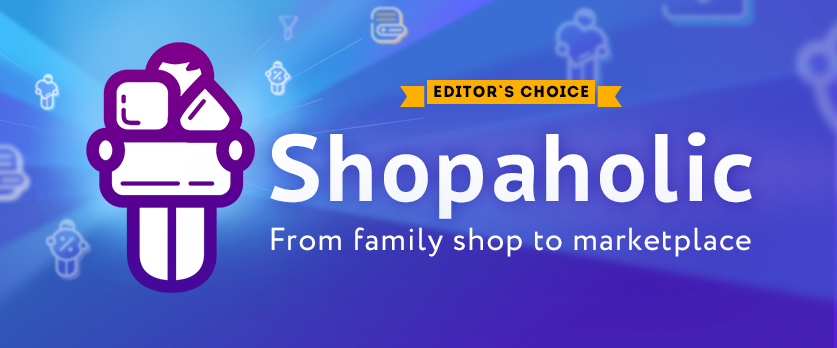
Recently October CMS has become an even more attractive platform for marketplace developers as a new set of plugins have been introduced that cater specifically to the eCommerce / marketplace design & development domain. Shopaholic is an entire ecosystem of eCommerce plugins designed to help developers bring their projects to life in no time. The most common features and tasks to be performed by a typical eCommerce platform or marketplace are already covered by Shopaholic’s set of plugins, some of which are free and some come at competitive prices.
Shopaholic is overall a great tool for building marketplaces from the ground up as it allows to download and install plugins and add features gradually as your business steadily grows. There is no need to buy all plugins at once, you just choose the ones you need at the moment and then come back when you need to add more functionality to your project. It’s a great tool for developers that provides high flexibility and reliability as all plugins are covered with automated testing.
Top Marketplace Development Stacks
Let’s take a look at the top marketplaces and the technology stacks that they use.
Marketplace | Technology Stack |
|---|---|
eBay | JavaScript ES6, NodeJS, Java, Apache Tomcat, Cassandra, Hadoop, Oracle, Marko |
Amazon | Angular, MySQL, Amazon AWS, Perl |
Airbnb | ReactJS, JavaScript, MySQL, Redis, nginx, Sass, Amazon AWS, Java, Ruby, Rails, Hadoop, Presto, Druid |
Uber | NodeJS, ReactJS, BackboneJS, MongoDB, PostgreSQL, MySQL, Cassandra, jQuery, Redis, Python, Go, Java, Objective-C, Amazon AWS |
Etsy | Apache HTTP Server, Amazon AWS, HoganJS |
Flubit | NodeJS, Angular, jQuery, nginx apache HTTP Server, HTML5, MySQL, Python, Amazon AWS, Redis, PostgreSQL, MongoDB, Sass, RabbitMQ, Memcached, SQLite, Symfony, Rackspace Cloud Servers |
Newegg | NodeJS, MySQL, Redis, Java, .NET, Microsoft IIS, Apache Tomcat, Kafka, Hadoop, Storm, HBase |
Bonanza | Apache HTTP Server, Ruby, Rails |
Rover | Nginx, Python, Django, BackboneJS, Mustache, Underscore |
TakeLessons | PHP, nginx |
As we can see the leading companies like Amazon, eBay, Airbnb, Uber, Flubit, Newegg and TakeLessons choose either JavaScript or PHP based technology for their marketplace solutions, among which are NodeJS, Angular, ReactJS, JS ES6 and PHP.
If you are in need of marketplace development services using the above-mentioned technologies and looking for high-quality services, LOVATA is a great starting point for your business. We are a software development company with over 10 years of experience and a rich technology stack:
- Front-end: Angular, ReactJS, Vue;
- Back-end: Node.js, Express.js, PHP, Laravel, Lumen, OctoberCMS;
- Full-stack: MEAN stack, LAMP stack;
- Database technology and tools: MySQL, Redis, NoSQL, MongoDB, PostgreSQL;
- Languages & peripherals: JS ES6+, PHP 5-7, HTML 5, CSS, jQuery, REST API, Ajax;
- Servers & Cloud computing services: Apache, nginx, Microsoft Azure, Amazon AWS, Salesforce, IBM Bluemix.
Contact us if you require our help.
Healthcare Industry Marketplace Development by LOVATA
At LOVATA we had the chance to work on a complex marketplace for the healthcare industry. 2doc is a healthcare services vertical marketplace that allows to find doctors and medical specialists all in one place and schedule appointments right on the spot.

Marketplace features include the possibility to choose a medical expert by specialization, type of service, cost, expert’s qualification and seniority, feedback from previous patients or desired treatment location. The service also provides an opportunity to schedule an appointment for a certain day and time, and be confident to receive high-quality treatment or consultation at the chosen time.
Time slots always remain relevant due to the integration with the CRM system. Only currently available appointment times are displayed. As soon as a new appointment is scheduled, that time slot is no longer visible.
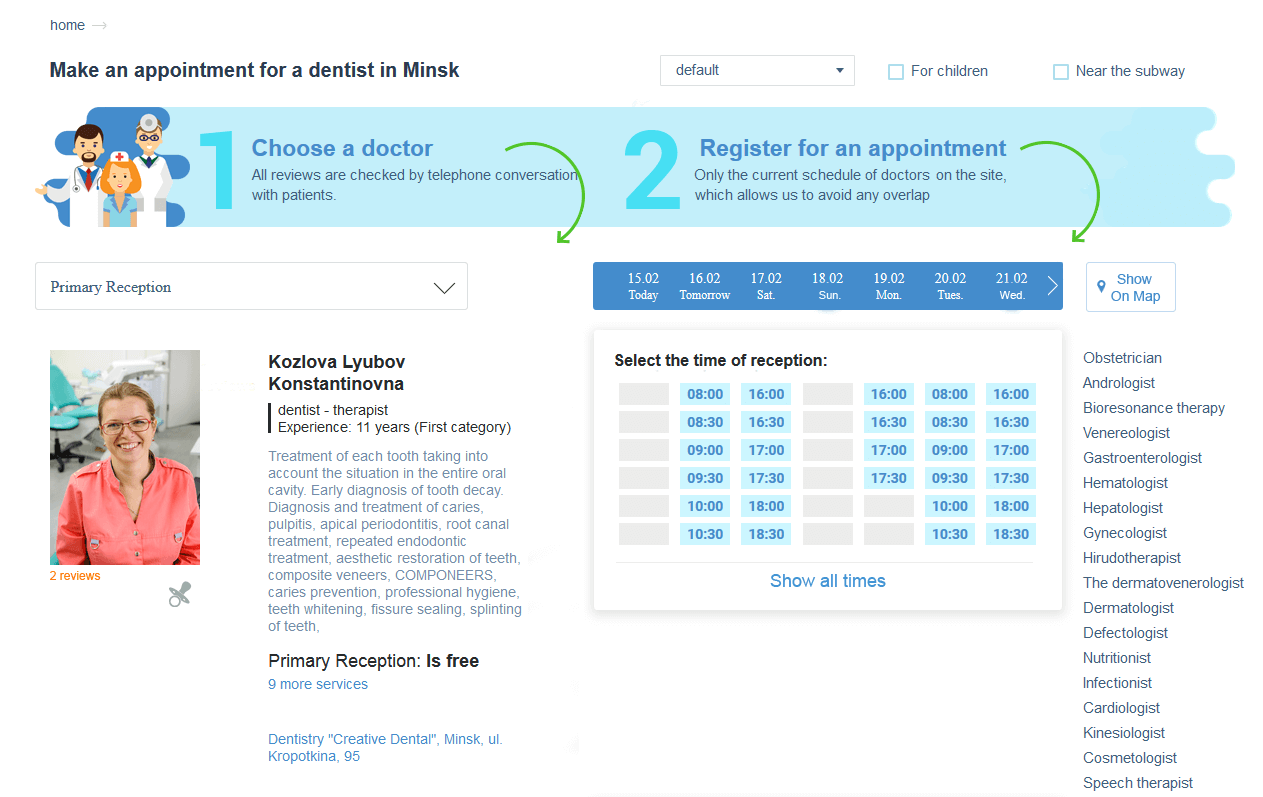
Technology stack: PHP/Laravel/October CMS, MySQL, jQuery, Beanstalk.
Insurance Marketplace Development by LOVATA
We have also set foot in the insurance industry and introduced a powerful solution. GoZebra is a work of ours and it’s the most popular car insurance policies aggregator on the territory of Kazakhstan. The marketplace provides a variety of services: from comparing car insurance companies, coverage and rates to ordering the most appropriate auto insurance policy.
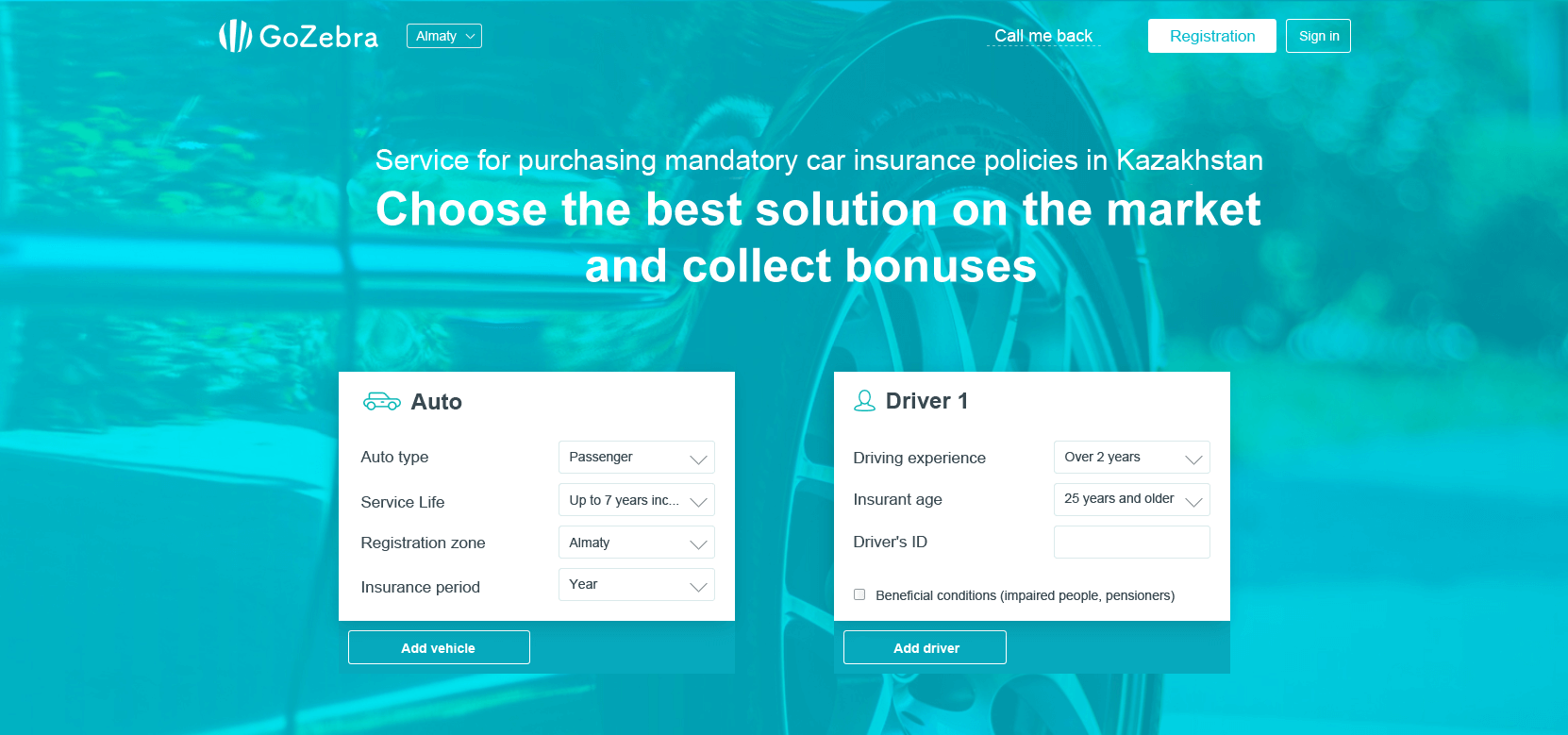
The project includes:
- Web application that is used to attract customers and generate vehicle insurance requests;
- Mobile apps for iOS and Android that duplicate the website functionality to simplify the process of applying for auto insurance;
- CRM system that is used to manage incoming requests from clients, as well as updating website and mobile apps’ content.
Technology stack: AngularJS, PHP, JavaScript ES6, Java, IOS:Swift, Android SDK.
Takeaway
Online marketplaces give the opportunity for startups and established businesses to expand their presence and reach out to more customers locally and internationally. However, going after the top marketplaces and following in their footsteps might not be a good idea, as you most likely will suffer from great competition.
Building an online marketplace, you should start with a niche market. You must always be on the lookout for unique ideas, innovative approaches, something never seen before. Don’t try to copy other’s ideas, but rather innovate and invest time, money and efforts into building raw ideas from scratch. A great idea is what makes for great success, not just the latest technology.
A major mistake of most startups is to be focused on building and launching their marketplace app, while not taking the time to work out a smart marketing strategy and spend money on it. Marketing is the greatest part of marketplace development and it includes online/offline ads, SEO, social media marketing (SMM), content marketing and the list goes on.
If you require services in building or developing existing marketplaces, we at LOVATA can offer you great help in design & development as well as marketing and promotion, including SEO and SMM. As experienced marketplace developers we can become a great business partner for you and contribute to your platform’s success. Do not hesitate and send us your request.

